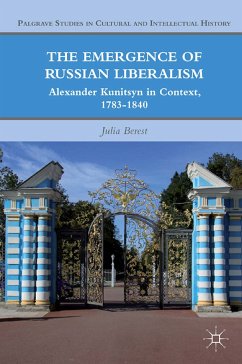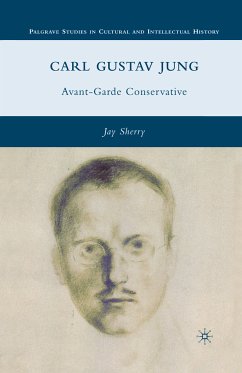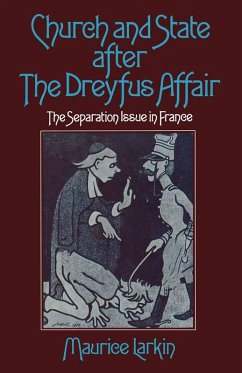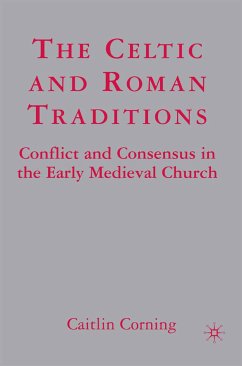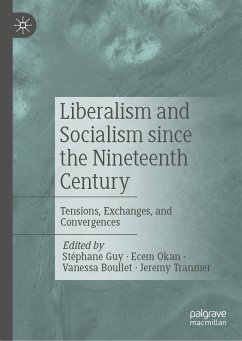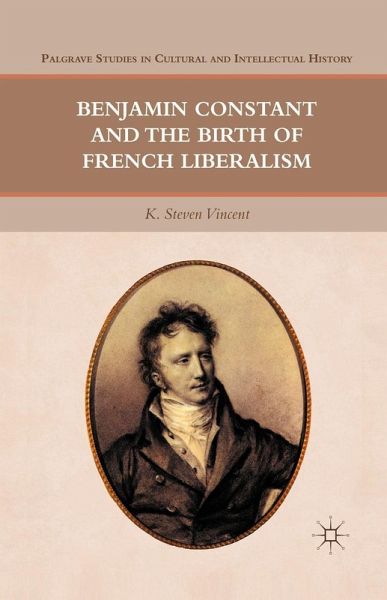
K. Steven Vincent
eBook, PDF
Benjamin Constant and the Birth of French Liberalism (eBook, PDF)

PAYBACK Punkte
22 °P sammeln!






This book advances a new interpretation of the timing and character of French (and more broadly European) liberalism, and contributes to the ongoing debate concerning the place of morality, sociability, and conceptions of the "self" in modern liberal thought.
Dieser Download kann aus rechtlichen Gründen nur mit Rechnungsadresse in A, B, BG, CY, CZ, D, DK, EW, E, FIN, F, GR, HR, H, IRL, I, LT, L, LR, M, NL, PL, P, R, S, SLO, SK ausgeliefert werden.
STEVEN VINCENT Professor of History at North Carolina State University, USA.
Produktdetails
- Verlag: Palgrave Macmillan US
- Seitenzahl: 280
- Erscheinungstermin: 12. Januar 2011
- Englisch
- ISBN-13: 9780230117105
- Artikelnr.: 46752550
'As a fierce advocate of decentralization, religious toleration, and the rule of law, Benjamin Constant's Talleyrand-like ability for political survival has led many scholars to label him a political opportunist. However, in this superb exploration of the provenance of French liberalism, Vincent restores the intellectual and physical companion of Germaine de Staël to renewed importance. Highly recommended.' CHOICE
'Vincent's new work, deftly drawing on a wide array of both primary and secondary works, is bound to become an indispensable instrument for any student of Benjamin Constant in the English-speaking world.' History of European Ideas
'The book expertly narrates Constant's early years and development into a liberal
'Vincent's new work, deftly drawing on a wide array of both primary and secondary works, is bound to become an indispensable instrument for any student of Benjamin Constant in the English-speaking world.' History of European Ideas
'The book expertly narrates Constant's early years and development into a liberal
Mehr anzeigen
political thinker and actor. It provides excellent descriptions of post-revolutionary France and the problems Constant confronted when he entered politics in the 1790s. Vincent convincingly argues that Constant's liberal political stance emerged quite early, namely during the Directory and Consulate, and that it was conceived expressly to deal with the issues of his time.' H-France
"Benjamin Constant and the Birth of French Liberalism is lucid, elegantly written, and useful, summing up the major elements of political history in this period with accuracy and incisiveness. Vincent brings together the political, the socio-cultural, and the literary, using each to reflect on the other in provocative ways. His account allowsreaders to follow the intricate connections between the volatile ideological climate of the period from 1789 to 1815, the elite social world of the Old Regime and Revolution, and the literary discourse of sensibilité. This careful exposition allows Vincent to make subtle points with considerable acuity." - John Warne Monroe, Associate Professor, Department of History, Iowa State University
"This book is an original and well-researched piece of scholarship about a thinker of major importance and growing reputation. Vincent shows a flawless familiarity with Constant's own writings, the political and intellectual context in which they were set out, and the secondary literature relating to Constant himself and the period. Benjamin Constant and the Birth of French Liberalism will make a contribution to Constant scholarship, to the study of French liberalism, and to the study of liberal thought." - Jeremy Jennings, Professor of Political Theory, School of Politics and International Relations, Queen Mary University of London
"This is an illuminating, thoughtfully conceived, and richly contextualized study of Benjamin Constant's development as a political thinker. Vincent provides a lucid and nuanced account of Constant's 'pluralistic liberalism' and argues persuasively that this important variety of French liberal political theory emerged in the aftermath of the Terror in the struggle to establish a stable political order that would not subvert the principlesof the Revolution." - Jonathan Beecher, Professor of History, University of California, Santa Cruz
"Benjamin Constant and the Birth of French Liberalism is lucid, elegantly written, and useful, summing up the major elements of political history in this period with accuracy and incisiveness. Vincent brings together the political, the socio-cultural, and the literary, using each to reflect on the other in provocative ways. His account allowsreaders to follow the intricate connections between the volatile ideological climate of the period from 1789 to 1815, the elite social world of the Old Regime and Revolution, and the literary discourse of sensibilité. This careful exposition allows Vincent to make subtle points with considerable acuity." - John Warne Monroe, Associate Professor, Department of History, Iowa State University
"This book is an original and well-researched piece of scholarship about a thinker of major importance and growing reputation. Vincent shows a flawless familiarity with Constant's own writings, the political and intellectual context in which they were set out, and the secondary literature relating to Constant himself and the period. Benjamin Constant and the Birth of French Liberalism will make a contribution to Constant scholarship, to the study of French liberalism, and to the study of liberal thought." - Jeremy Jennings, Professor of Political Theory, School of Politics and International Relations, Queen Mary University of London
"This is an illuminating, thoughtfully conceived, and richly contextualized study of Benjamin Constant's development as a political thinker. Vincent provides a lucid and nuanced account of Constant's 'pluralistic liberalism' and argues persuasively that this important variety of French liberal political theory emerged in the aftermath of the Terror in the struggle to establish a stable political order that would not subvert the principlesof the Revolution." - Jonathan Beecher, Professor of History, University of California, Santa Cruz
Schließen
Für dieses Produkt wurde noch keine Bewertung abgegeben. Wir würden uns sehr freuen, wenn du die erste Bewertung schreibst!
Eine Bewertung schreiben
Eine Bewertung schreiben
Andere Kunden interessierten sich für


